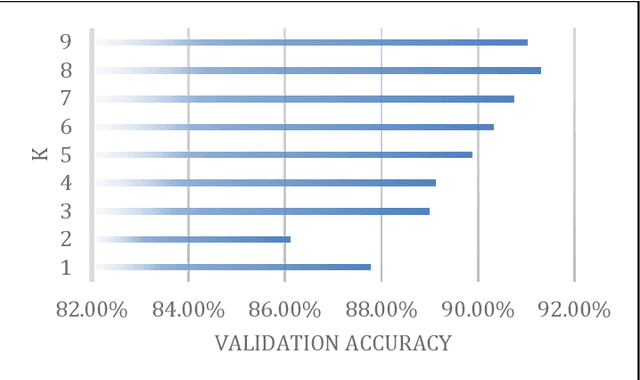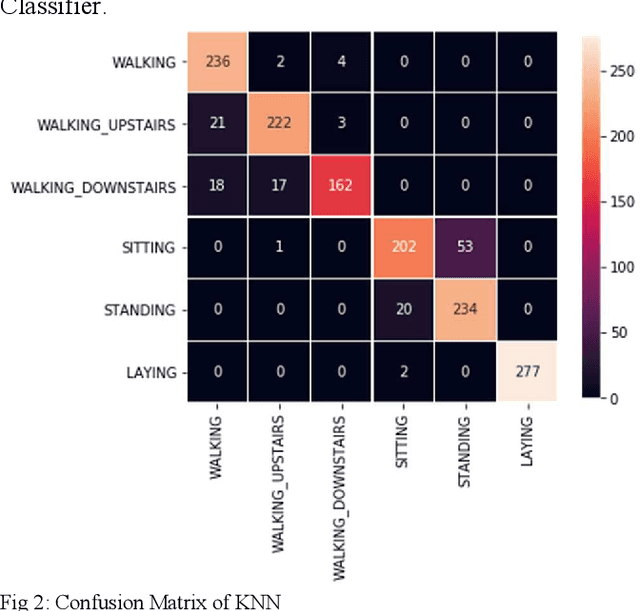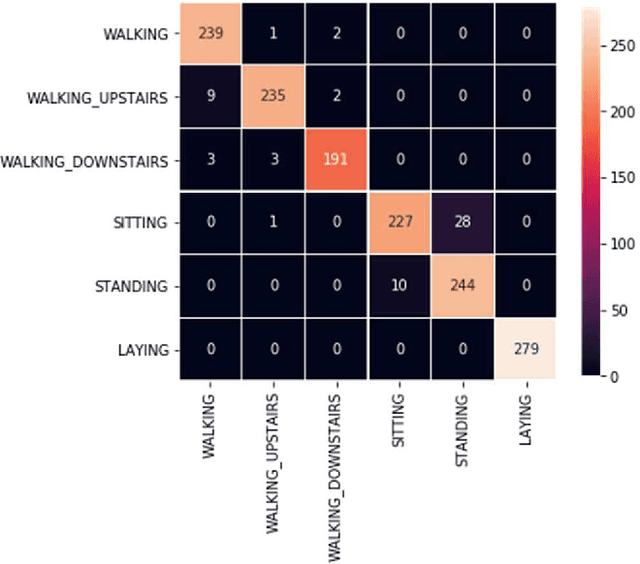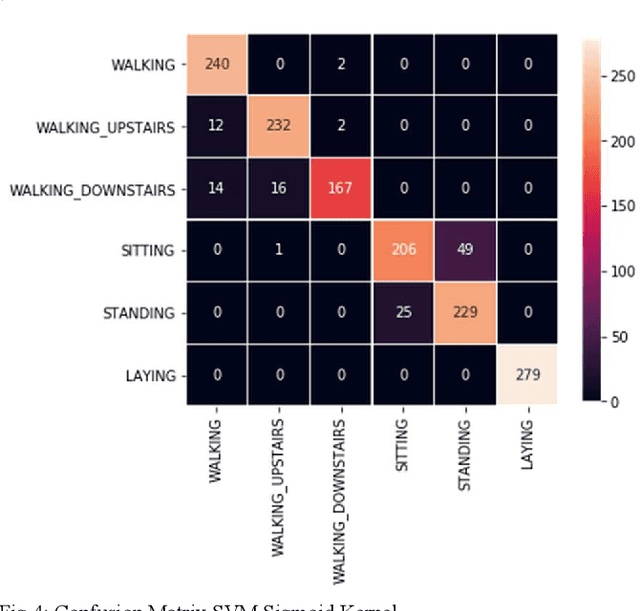Usman Iftikhar
Classifying Human Activities with Inertial Sensors: A Machine Learning Approach
Nov 09, 2021



Abstract:Human Activity Recognition (HAR) is an ongoing research topic. It has applications in medical support, sports, fitness, social networking, human-computer interfaces, senior care, entertainment, surveillance, and the list goes on. Traditionally, computer vision methods were employed for HAR, which has numerous problems such as secrecy or privacy, the influence of environmental factors, less mobility, higher running costs, occlusion, and so on. A new trend in the use of sensors, especially inertial sensors, has lately emerged. There are several advantages of employing sensor data as an alternative to traditional computer vision algorithms. Many of the limitations of computer vision algorithms have been documented in the literature, including research on Deep Neural Network (DNN) and Machine Learning (ML) approaches for activity categorization utilizing sensor data. We examined and analyzed different Machine Learning and Deep Learning approaches for Human Activity Recognition using inertial sensor data of smartphones. In order to identify which approach is best suited for this application.
 Add to Chrome
Add to Chrome Add to Firefox
Add to Firefox Add to Edge
Add to Edge